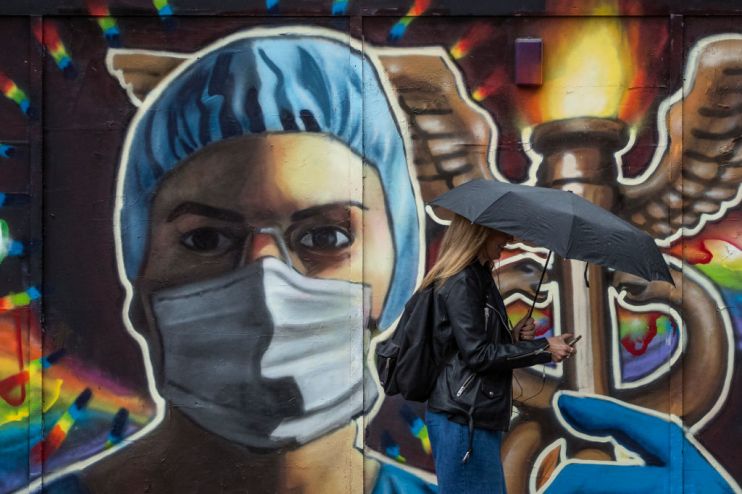Samaritans and the City: A message for World Mental Health Day

Tomorrow marks World Mental Health Day, and this year, I can’t help but think how many lives have been profoundly altered by the shock events of 2020.
I am reflecting more on what we have all learnt, about ourselves and our world. What change do we want? How can we directly contribute to making our world a safe and supportive place?
And I’ve thought a lot about how I might contribute to that change and how my experiences as a father, husband, chief executive and former Samaritans volunteer could bring people together, to be part of Samaritans’ movement to help those who are struggling.
An emotional lifeline
In March 2020, as people across the UK closed their doors, the charity Samaritans was drawing up plans to get through the biggest challenge it has ever faced. In the first 14 weeks of lockdown, volunteers provided emotional support over 645,000 times.
Right now, one in every four calls for help that they receive is about coronavirus. Volunteers report that the impact of Covid-19 on callers’ lives is mentioned in almost every contact.
Life in the City
Although I’d known about Samaritans for many years, my choice to get directly involved was triggered by a message saying one of our family friends was missing.
Charles, a City professional, had always seemed a happy and funny person, devoted to his family. Although work was sometimes tough, he always seemed to manage to pull through. Sadly, this was not the case. It seemed as if money troubles might have made Charles believe his family was truly better off without him, and our worst fears were realised when he was found some days later.
Working in life insurance, it had always struck me what a high proportion of claims were suicide-related. Suddenly the two thoughts — of work and of Charles — came together for me.
I signed up with my local branch and started intensive training. The training itself was an incredible experience, learning how to suspend one’s own judgement, and really listen to somebody tell their story. I believe it has changed me for the better in all aspects of life.
Samaritans provides an incredibly supportive environment for trainees and listening volunteers. It is a scary moment when you take your first call, but you never face it alone.
Listening to people’s stories, I learned a huge amount about the realities of life away from the City bubble: challenges in the NHS, the tough lives of poorly-paid workers and the unemployed, the impact of poor housing and crime. Beyond that, though, it was a privilege to listen to people’s stories, some of whom had overcome incredible difficulties.
Ultimately, it is not the vulnerability of callers that strikes you — it is their immense resilience.
A charity like no other
The Samaritans’ mission has never been so vital. Today, people are contacting Samaritans with increased levels of anxiety and distress, deteriorating mental health conditions coupled with lack of access to services, and stark fears for job and economic stability. While it is too early to know the full effect of coronavirus, we do know that suicide rates increase with higher levels of economic deprivation, and that people who are unemployed are two to three times more likely to die by suicide than those in employment.
But suicide isn’t inevitable — and we have an opportunity to prevent it.
Where I work, at Legal & General, Samaritans provide a valuable service, giving bereavement training to our customer teams, and personally I am proud to be chairing Samaritans City Supporters Network, a group of passionate, City-based individuals supporting the only charity that is there to listen to anyone struggling to cope, 24 hours a day, 365 days a year.
In these trying times, the charity has ambitious plans — whether it’s the development of digital tools such as a new app and online chat, ensuring that key workers have access to specialist, round-the-clock mental health support, rolling out innovative remote volunteering methods, or overhauling the charity’s tech capabilities to massively increase the number of people they can support.
This World Mental Health Day, I am proud to support a charity like no other, in a year like no other, and to help them continue to be there for the millions of people who turn to them for support.
Find out how you or your organisation can support Samaritans to change and save lives by emailing philanthropy@samaritans.org.
Main image credit: Getty